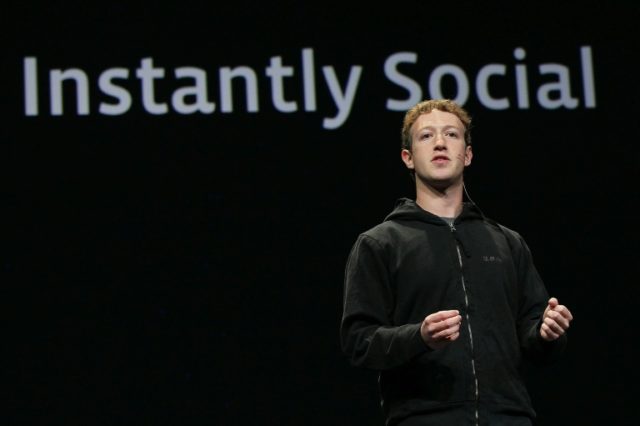Facebook has partnered with British newspaper the Daily Telegraph to publish positive stories about the company and downplay consumer concerns. So far the Telegraph has published 26 such stories, each one marked as an “advertisement sponsored by Facebook.”
According to Business Insider, Facebook has partnered with the newspaper “to run a series of features about the company,” including “stories that defend it on hot-button issues it has been criticised over like terrorist content, online safety, cyberbullying, fake accounts, and hate speech.”
This partnership has led to 26 stories under the “Being human in the information age” series over the past month alone, with headlines such as, “Why Facebook’s mission is to bring the world closer together,” “How Facebook is fighting back against the scammers,” “Why have technofears dominated history?” and “How the internet has reshaped feminism.”
“Fake news, cyberbullying, artificial intelligence – it seems like life in the internet age can be a scary place,” declares the Telegraph at the end of each sponsored Facebook article. “That’s why Telegraph Spark and Facebook have teamed up to show how Facebook and other social media platforms are harnessing the power of the internet to protect your personal data.”
The sponsored Facebook article headlines so far have included:
‘We want to make Facebook safe for everyone’
How crypto-anarchism redefines the fight for freedom in the 21st century
Why Facebook’s mission is to bring the world closer together
Does freedom of expression online need a code of conduct?
Why have technofears dominated history?
How to deal with cyberbullying
Tackling hate speech and terrorism on social media
How donating on Facebook has transformed fundraising
Emergency communications: how social media can help during a crisis
How the internet has reshaped feminism
How does sports social media and the internet influence feminism?
Are women objectified or empowered by the internet?
What technology does Facebook use to protect users against fake accounts?
How Facebook is fighting back against the scammers
Whatever happened to the gatekeepers of news reporting?
Does the future of big data mean Big Brother politics?
What action is Facebook taking to tackle terrorist content?
How Facebook is removing the threat of fake accounts
Has the biggest danger of the internet been left unchecked?
10 tips on how to spot fake news
How to protect your privacy on social media
How Facebook targeted advertising works
Rise of the robots: the risks of AI replacing human creativity
What are the challenges of using Artificial Intelligence?
Human AI collaboration: how the rise of AI can also be the rise of us
How artificial intelligence has the ability to detect fake news
Many of the articles read like corporate press releases, praising the company for allegedly tackling certain issues, and the partnership was criticized by the Counter Extremism Project for running an article about how Facebook is tackling extremism on the same week that the social network struggled to remove videos of the Christchurch massacre in New Zealand.
The same week of the Christchurch attack, @Facebook told us in a sponsored puff piece in the @Telegraph that they have terrorist content under control.
This week, the picture looks very different.https://t.co/YJ0ErDJuHV
— CEP Europe (@CEPinEurope) March 20, 2019
Facebook has previously partnered with major newspapers to improve its public image, and last year, the company took out full-page advertisements in ten newspapers across the United States and United Kingdom to apologize for its latest user data scandal at the time.
The full-page ad appeared in the New York Times, the Washington Post, the Wall Street Journal, the Sunday Times, the Sunday Telegraph, Mail on Sunday, the Sunday Express, and the Observer.
In 2017, Facebook also took out full-page advertisements in the Telegraph and the Guardian to advise social media users how to spot “fake news.”
In January, it was revealed that Facebook would be investing $300 million into journalism over three years, while more recently, Facebook CEO Mark Zuckerberg raised the possibility that Facebook could soon start paying money to news outlets to feature their news stories on the social network.
Charlie Nash is a reporter for Breitbart Tech. You can follow him on Twitter, or like his page at Facebook.

COMMENTS
Please let us know if you're having issues with commenting.